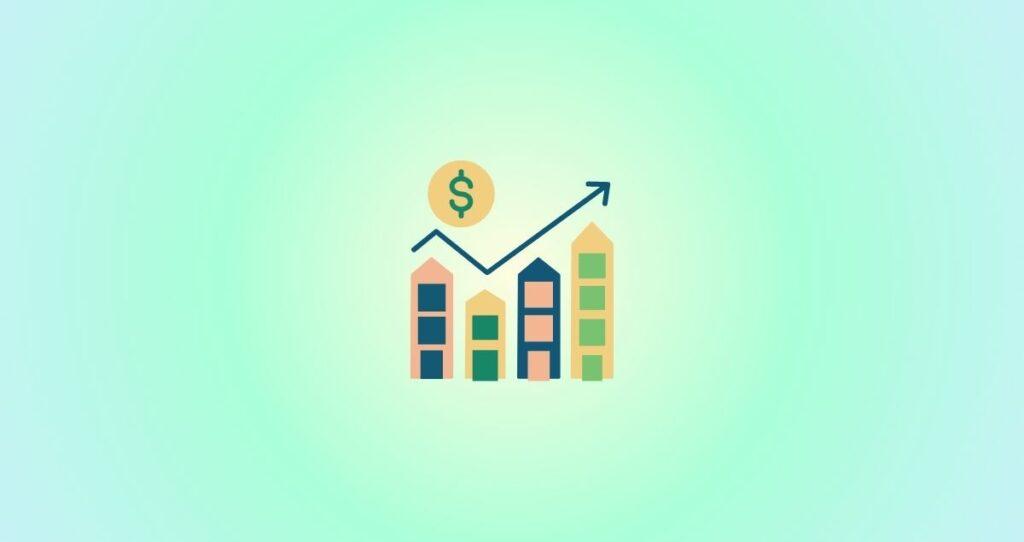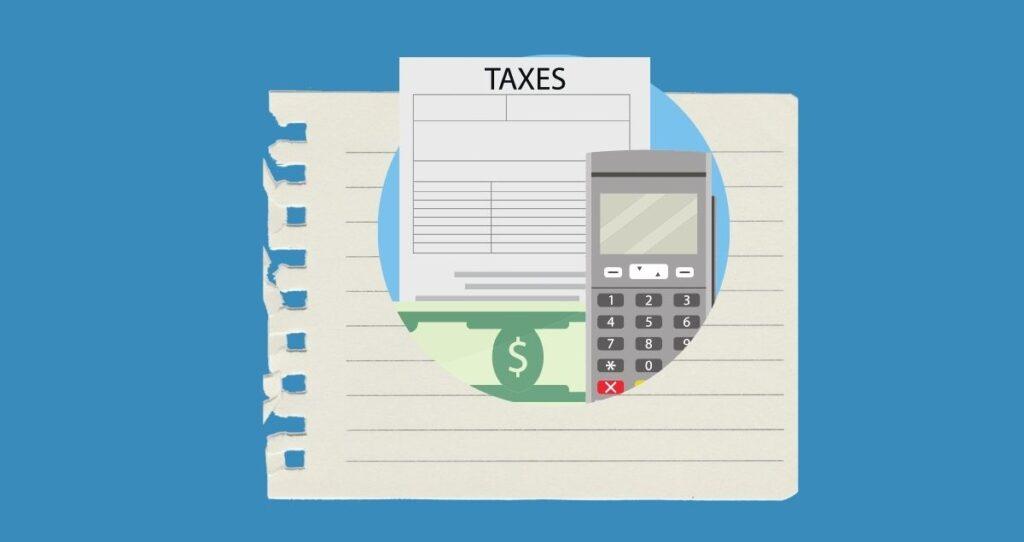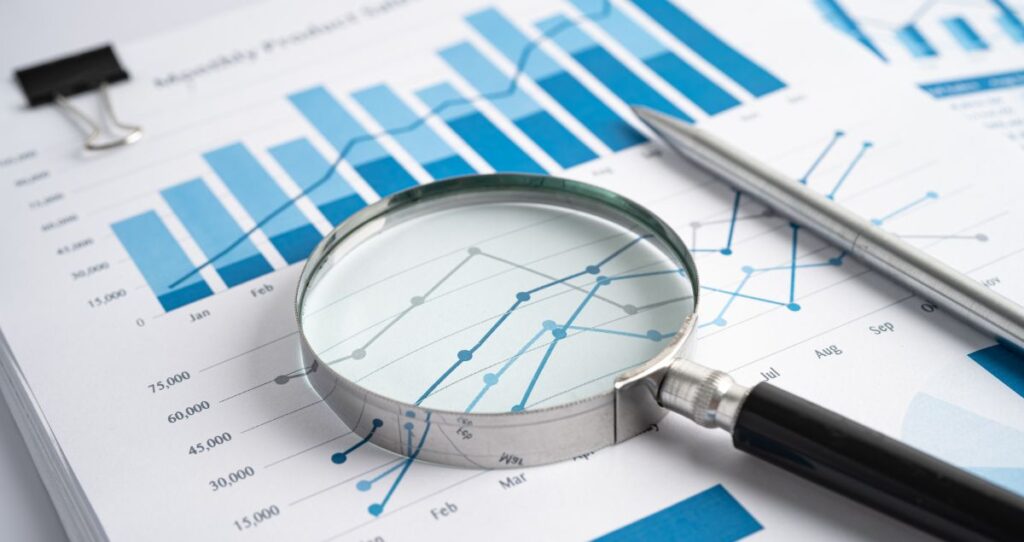If you are looking for ways to diversify your portfolio or simply earn a regular passive income, investing in bonds is something you should look into. What are bonds, and how do you invest in them? Bonds are investment products where you lend money to a company or the government in exchange for a regular interest rate for a given time.
On top of the interest yield you receive, the company or government pays you the original face value, also known as per value. The bond maturity date is when the bond issuer pays you back the principal amount and any accumulated interest. To simplify things, you can consider the maturity date as the due date or termination date.
In this article, I will show you exactly how to invest in bonds, key terms you should know when investing in bonds, the best bonds to buy, types of bonds, and how bonds can help you diversify your portfolio.
What are bonds?
Conventional ways of borrowing money mean you, the consumer, borrow money from a company and pay it back over time with interest. In this case, the bank or lending company is the lender/creditor, and you are the borrower or the debtor.
Bonds work oppositely. Instead of borrowing money from an institution such as a corporation or government, the company borrows money from you. In this case, you become the lender, and the company/government becomes the borrower.
Similarly to traditional borrowing, the company agrees to pay you a pre-determined interest monthly, quarterly, or yearly until maturity. Once the bond matures, you receive your initial investment plus any additional interest.
In a nutshell, bonds are investment products in which you lend money to a company or the government for a given time. In exchange, you receive an agreed interest rate paid monthly, quarterly, every six months, or yearly until maturity. At maturity, you receive the principal plus any accumulated interest. There are many types of bonds, but corporate, government, and municipal bonds are more common.
Ten important bond investing terms you should know
As an investor, there are investment terms you must know to make informed investment decisions and maximize your return on investment. To master bond investing, master the key terms for bond markets and bond investing.
The top 10 terms you must know to invest in bonds
- Bond. In simple terms, a bond is an investment security in which an investor lends money to a corporation or a government in exchange for a fixed interest rate, also known as a coupon rate, until maturity.
- Yield to maturity. The yield to maturity or yield is the annual return an investor receives if they purchase the bond now and hold it until maturity.
- Per value/ face value. Per value represents the amount the bond issuer returns to the investor when the bond matures.
- Coupon. The coupon is the percentage interest an investor receives from holding a bond in a year.
- Coupon rate. The coupon rate is a fixed interest rate, such as 5%, that a bond issuer pays the investor, expressed as an annual percentage.
- Maturity. The maturity date represents the date the bond terms will end, and the investor receives the par value.
- Junk bonds. These are low-grade bonds issued by companies with low credit ratings from the top three rating agencies (Moody’s scale, Standard & Poor’s, and Fitch). Junk bonds come with higher interest rates/yield but also carry the highest risk of default.
- Investment bonds. Companies issue these bonds with higher credit ratings from the top three credit rating agencies. These bonds pay lower coupon rates but also carry the lowest risk.
- Credit rating. Like consumer credit ratings, where credit bureaus establish your credit rating, companies, governments, and agencies also get credit ratings. Common rating agencies include Moody’s, Standard & Poor’s, and Fitch. Based on a company’s financials and ability to repair, bonds are classified as investment or junk bonds.
- Secondary markets. These are exchange mediums where investors can buy and sell securities, such as exchanges, after their initial bond purchases.
How do bonds work?
When you invest in bonds, you give the bond issuer the face value or the principal. Think of the face value as the principal amount the bank gives you when you take out a mortgage, except that it is being done in reverse. Instead of borrowing money, you lend it to the company or government.
The bond issuer will then agree to pay you a fixed interest known as yield or coupon rate until the maturity date. For example, if you have a $100,000 bond with a 10-year maturity date at a coupon of 5% paid monthly, you will get paid $5,000 per year for ten years.
When the bond matures, you receive your original payment. In this example, you will receive your $100,000 back after ten years. Coupon rates are fixed for the duration of the bond.
Top 6 types of bonds to know when investing in bonds
Corporate Bonds, Government Bonds, and municipal Bonds are the three main categories of bonds. Here is how these bonds differ from each other and how they can benefit you.
1. Corporate Bonds
Corporate bonds are fixed-income securities corporations issue to fund business expansions and operations. For example, if XYZ company wants to fund its research development or expand to increase production volume, it can raise money by issuing bonds.
When you invest in a corporate bond, the issuing company pays you a fixed interest rate, also known as a bond coupon, until maturity. You get your principal and any remaining or unpaid interest when the bond matures.
2. Treasury/Government Bonds
These bonds are usually referred to as Treasury Bonds. As the name hints, Government Bonds are securities issued and backed by the U.S. government. Government bonds are more secure than corporate bonds. Like any other investments, however, being secure/posing low risk means you get a lower interest yield on your investments. Government Bonds have maturity dates ranging from 10, 15, to 30 years.
3. Municipal Bonds
Municipal Bonds, also known as Munis, are bonds issued by states, local governments, cities, or counties to finance public projects such as bridges, hospitals, roads, schools, etc. Unlike other types of bonds where interest earned is taxable, most Municipal Bonds come with tax advantages. Generally, interest yield on Munis is exempt from local, state, or federal tax, making it attractive for investors looking to diversify their portfolios and lower their tax liabilities.
4. Green Bonds
Some of the lesser commonly known types of bonds are Green Bonds. Unlike other types of bonds where the money can be used to fund any projects, Green Bonds are specifically designed to raise money for environmentally friendly projects. These bonds are a favorite to investors who love to support environmentally friendly initiatives such as renewable energy and related green initiatives while earning interest in their investments.
5. Agency Bonds
Agency Bonds are securities issued by government-sponsored agencies. Unlike government Bonds, which have relatively lower rates, agency bonds pay a bit higher yield, making them a better alternative to government bonds. These bonds, however, are not backed by the U.S. government. However, they are safer than corporate bonds due to the affiliation between these agencies and the U.S. government. For example, if you invest in the Federal Home Loan Banks Bonds(FHLB), your investments will be safer as this agency is unlikely to go under.
The downside of Agency Bonds is the call risk, as the agency might pay you back before the maturity date, reducing your return on investment.
6. Bond ETFs
Bond ETFs are diversified bond funds that invest in different types of bonds. Instead of buying one bond, such as a Treasury Bond, you buy a Bond ETF that invests in different types of bonds. Bond ETFs offer diversification to investors who want liquidity and price transparency. These bonds, however, come with some risks, including credit risk, where some bond issuers might default due to a lower credit rating.
Learn more about the complete list of all different types of bonds
How to invest in bonds?
Investing in bonds is relatively easy. There are generally a few ways you can buy bonds, including purchasing a bond through a broker or directly from the government.
- Invest in bonds through the government. If you want to buy Government Bonds/Treasury Bonds, you can buy them directly from the Treasury Direct website. The website also has resources, including daily rates for 10-year Notes and 30-year Bonds.
- Invest in bonds through a broker. Similar to equities, Bonds are bought and sold from banks and brokerage firms, such as Fidelity and Charles Schwab. Depending on the bond you invest in and the market rates, you can get discounts.
How are bonds rated?
Similar to your credit rating issued by credit reporting agencies, bond issuers are also rated by bond rating agencies to determine their creditworthiness. Each bond issuer receives a credit rating, which helps investors make informed decisions. As an investor, you need to know the quality of the bond in which you invest your hard-earned money and the company’s ability to pay you back.
It is a credit rating because when you invest in bonds bond, you lend money to the government or company for a fixed interest. The ability of the company or government to fulfill the bond terms helps determine its bond rating. Moody’s Investors Service, Standard & Poor’s (S&P), and Fitch are the top bond rating agencies.
- Low Bond Rating. Bonds with low ratings carry more risk as the issuer could default. However, these bonds usually pay higher yields to offset the risk.
- High Bond Rating. Bonds with high credit ratings are safer but have lower yields.
Bond ratings are intended to help investors assess the quality of different bonds, and rating agencies use a similar rating hierarchy. Bond rating agencies research the financial health of each bond issuer and assign a grate to the bond the company is issuing. According to Fidelity, bonds receive an investment grade or non-investment grade. Bonds with investment grades have a Baa3 rating on Moody’s scale or a BBB- rating (on the Standard & Poor’s and Fitch scale) or better. All other bonds with a lower rating than these two ratings are considered junk or high-yield bonds.
Things to know before investing in bonds
While bonds are attractive to many investors and can help diversify your portfolio, there are a few things you need to know before investing in bonds.
Here are three things you should know before investing money in bonds.
1. Creditworthiness usually determines bond rates
Just like consumer lending, where a borrower with bad credit pays a higher interest rate, bonds operate similarly. Bond issuers with low credit ratings usually offer higher interest yields for the increased risk. On the other hand, low-risk bonds such as Government Bonds come with lower yields as the risk of a government going bankrupt is low. You should know your risk tolerance before investing in bonds. Refer to the Moody’s Investors Service, the Standard & Poor’s (S&P), and Fitch when comparing bonds.
2. You can resell your bond even before maturity
Bonds are purchased and sold daily. If you have a bond, you can resell it to other investors. However, understand how rates affect bond prices before you sell your bonds. If you resell your bonds when market rates are lower than when you purchased the bond, you will make a little profit. The reverse is also true.
3. The risk of interest rate
You might face the risk of interest rates when you resell your bonds. Bond prices move in the opposite direction to interest rates. According to the U.S. Bank, bond values decrease when yields increase. As an investor, it is critical to time the market, as selling your bonds when rates are higher than when you purchased them means you will lose money. This is because when rates go higher, existing bonds lose value.
Why do existing bonds lose value when market rates increase?
When rates increase, interest rates across different financial products also increase. For example, during high inflation, the federal government increases rates to cope with inflation. That also increased interest rates for various products and services such as deposit accounts, bonds, mortgages, and loans.
New bond rates increase when market rates increase, making them attractive to investors compared to existing bonds already fixed at lower coupon rates. In other words, investors prefer to buy new bonds at higher rates than existing ones. This lowers the value of existing bonds as bondholders tend to sell them at discounts.
Evaluate how long you want to hold your bonds.
Before you buy a bond, evaluate how long you want to hold onto it. This is because if you sell it in a secondary market, you might risk losing a portion of the original investment due to the interest rate risk. Since bond rates are fixed from the purchase until maturity, you can only guarantee the total return if you can hold onto your bond until maturity or sell the bond on the secondary market when market rates are lower than when you purchased the bond.
Why does the government issue bonds?
The government issues bonds to finance various infrastructure projects, such as building and maintaining roads, supporting veterans, and building schools. Sometimes, the government raises more money due to a deficit resulting from spending more than the revenues it collects.
How much money can I make investing in bonds?
The amount you can earn from investing in bonds depends on the type of bonds you buy, the coupon rate (interest yield), and the bond terms. For example, a $10,000 bond with a 10-year maturity date at a 4% yield will earn you $4,000 yearly for ten years. The higher the coupon rate and face value, the more money you earn. You also need to consider the type of bonds you buy, as non-investment bonds carry more risk even if they pay higher risks.
Are bonds good investments?
Most investors prefer bonds to diversify their stock and stock funds portfolios. Bonds are relatively safer than stocks, depending on the issuer’s credit rating. Since bonds come with fixed rates, your return won’t fluctuate due to volatility in the stock market. However, most bond returns are typically lower than stocks. Bonds will be a great addition to your investment strategies to diversify your portfolio.
You might also prefer bonds due to tax advantages. For example, Muni’s earnings are usually exempt from federal tax, state tax, and sometimes local government taxes. The tax benefits from Municipal bonds help to offset the low rates you receive.
Bonds are classified as fixed-income asset classes. Meaning they pay a fixed income at predictable rates. For this reason, bonds are also an excellent investment if you want to receive regular fixed income. For example, if you have retired, bonds can offer you a regular paycheck to cover your expenses without returning to work.
Can you lose money from investing in bonds?
While bonds are safer than stocks, investing in bonds carries some risks. Usually, you can lose money from investing in bonds in two ways.
- The bond issuer goes under. If the bond issuer you hold goes bankrupt, you risk losing unpaid interest and the face value.
- You sell your bond when market rates are higher. When rates increase, the value of existing bonds diminishes. If you sell when rates are higher, you will lose money on your bond if you resell it in the secondary market for less than you paid.
How do you make money with bonds?
There are typically two ways to make money with bonds.
- You sell it for more than you paid it for. When market rates are lower, the value of existing bonds increases. If you sell during this time, you might make more money than you paid.
- Fixed-interest yield. When you buy a bond, the issuer agrees to pay you coupon rates/interest yield monthly, yearly, or quarterly until maturity. These regular payments become your fixed income until the bond matures or if you resell the bond.
What to do when a bond matures?
Holding a bond means it will eventually mature. So, what should you do with the bond after it has matured? Typically, when a bond matures, you receive the face value. But, if you sell your bond before maturity, you might receive a different value as the value of your bond will increase or decrease based on market rates. Selling your bond when rates are higher means you will receive a lower value than you paid it for. On the other hand, selling your bond when rates are lower means you could make a profit.
Depending on your type of bonds, there are different ways to redeem them at maturity. Inside your online account, you should have an option to redeem securities. On the other hand, if you have a paper bond, you can take it to your local bank that issued it or redeem it by mail.
What are the best bonds to buy?
Just like stocks, the term best bonds can be deceiving and inaccurate. Think of saying, “Best stocks to buy.” There is no such thing as best stock to buy. However, there are some guidelines each investor should understand and follow. For example, penny stocks or stocks from startups without an established performance history are risky. The same strategy applies to bonds. Like there are risk categories of stocks, bonds also have a risk scale, which can help you make an informed decision.
Here are a few tips on deciding what the best bond to buy means for you and how to pick the best bond for your portfolio.
Know your risk tolerance and investment horizon.
The risk tolerance and investment horizon typically help determine the bond you buy. Government Bonds are a great choice if you don’t want to take on higher risk and are OK with a modest return on investment.
Buy bond ETFs
A bond ETF might be a great way to lower your risk if you want to diversify in the bond sector. Bond ETFs offer direct diversification compared to individual bonds and come with liquidity like stocks. You should also pick between active bond ETFs vs. Passive bond ETFs. Active bond EFTs have an expert manager who consistently selects bonds to help investors outperform the market. Investors usually pay a higher fee for active Bond ETFs. Passive bond ETFs, on the other hand, replicate the performance of an index without an expert manager, resulting in lower costs.
Buy Municipal Bonds
If you want to lower your tax liability, consider Municipal bonds, as they are usually exempt from state, local, and federal taxes.
Avoid junk bonds
Just bonds are classified as non-investment bonds and usually have higher rates. Investment bonds are those with a Baa3 grade on Moody’s scale or a BBB—on the Standard & Poor’s and Fitch scale or better. These bonds carry less risk as their issuers have low default risk.
When purchasing bonds, make sure the credit rating matches your investment strategies. Stick to investment-grade bonds to minimize risks.
Understand how interest rates affect bond prices.
Unless you are planning to hold your bond until maturity, there are times when you might need to resell your bonds. Reselling your bonds means you can either make money or lose money. Typically, bond prices move in the inverse direction of market rates.
How does inflation affect bond prices?
Inflation can affect the value of bonds, as rates can change in response to inflation. When inflation is higher, rates also go higher to cope with it. Higher rates directly diminish existing bond prices, reducing bond purchasing power.
Can I sell my bond before the maturity date?
Yes, you can sell your bond in a secondary market before maturity. Remember that the price you receive on the bond might be lower or higher than your original investment. If you sell your bond when market rates are higher, you will receive a lower price, as existing bonds lose value when yields are higher. On the other hand, if you sell your bonds when rates are lower than when you purchased them, you might make a profit.








